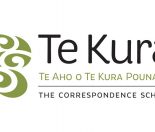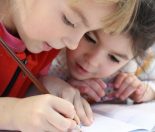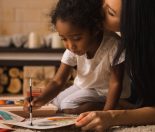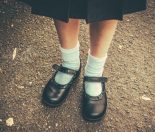Home education, also often known as home schooling, is the term used for the practice in which children receive their primary and/or secondary education in the family home or community and not in a school.
The difference between education (“helping to bring out latent capabilities”) and schooling (“training or disciplining”) is that the latter focuses on the general knowledge and basic skills (such as “the three Rs”) needed to function in our society as an adult citizen, while the former focuses on the natural talents of the individual child.
In New Zealand, every child between the ages of six and sixteen is legally obliged to be “enrolled in a registered school” (Education Act 1989) and most parents never question the idea that their children must attend a school in order to get a good job or be able to enrol in a university.
Home-educated children get an exemption from the Ministry of Education – provided the parents can prove that the child will “be taught at least as regularly and well as in a registered school” – and can even get financial support, but the Ministry reserves the right to inspect the work and to revoke the exemption.
Teenagers over the age of sixteen can opt to drop out of school and home educate themselves without the need for an exemption.
Why choose home education?
Some parents home educate out of principle and usually involve all their children from the beginning. These are usually parents who:
- want to ensure that their child receives instruction that is in accord with their own religion or other beliefs
- believe that they (not the state) are primarily responsible for their child’s education
- feel that the available school options not adequately provide a proper education
Others make the choice due to circumstances involving one or more of their children and may have tried schools first. They may have children whose:
- medical or physical conditions make going to school problematic
- nature is not catered for by traditional schools and who may have experienced problems such as bullying or being labelled with ADD, autism or other ‘disorders’
Do parents need special training to become home-educators?
Not at all.
Information that constitutes general knowledge and basic skills can be accessed online as well as in any library. Some parents prefer to buy a ready-made curriculum to be sure that they are not leaving anything out; others are quite confident in finding the information themselves and older children are equally capable of doing research so that, with increasing age, the parent needs to be less and less involved. Additionally, a quick Google search for “teacher supplies” or “school supply” sites will give parents many choices for materials to buy, often at good prices, and ranging from arts and crafts to science experiments and workbooks on any topic.
The advantage for home-educators is that they usually already have an idea of each of their children’s “latent capabilities” and can limit their expenses by catering to each child’s individual needs.
Personal attention, a relaxed atmosphere and a lack of competition help home educated children develop these natural talents as well as support their learning of the necessary general knowledge and basic skills.
Therefore, the Ministry’s “taught as well as” requirement is easy to achieve and most home educators exceed the number of hours considered “regular” without any effort at all.
Common worries about home-education
The two most commonly expressed worries from parents considering home education are: What about socialising skills? and What about getting into university?
Socialising skills
Home-educating families tend to meet each other on a regular basis to allow the children to socialise and they often organize field-trips together, and home educated children also join clubs and community programmes.
In fact, home education provides a natural social environment that involves people of all ages – allowing the opportunity to help younger children and ask for help from older ones – while avoiding the in-groups that exclude or bully children based on small differences. For many children this proves a healthier social environment.
Additionally, the home and community environment allows for the expression of inborn personality type differences that influence a child’s natural talents, learning style and socializing needs.
In short: Some children do fine at school because their personality type is suited to that environment and others do better in a less structured setting, like home.
What about the chances of getting into a university?
On request, home educated students are allowed to sit the same exams as school children and most universities offer entry exams and special programmes to accommodate those applicants who do not come directly from high school (such as foreign language speakers and mature students), and will admit home educated children into such a program, if they are over the age of sixteen, to do a year of university specific prep work in a “foundation year” and then enter as a normal university student the year after, usually with much better skills for dealing with the workload, organising their own schedule, self-motivation and with a good idea of what will be required of them and what their interests are.
How to become a home-educator?
At first glance the requirements needed to get exemption can seem rather daunting, but it is not as difficult as it sounds and organisations such as the World Home Education Network, which has subdivisions in nearly every country and city, and the National Council for Home Educators New Zealand (www.nchenz.org.nz) are there to provide help wherever possible. They have the literature, the know-how about the legal aspects and the contacts for parents who want to get together with other parents.
Useful websites:
Here are some other website that will give you more information about home schooling:






